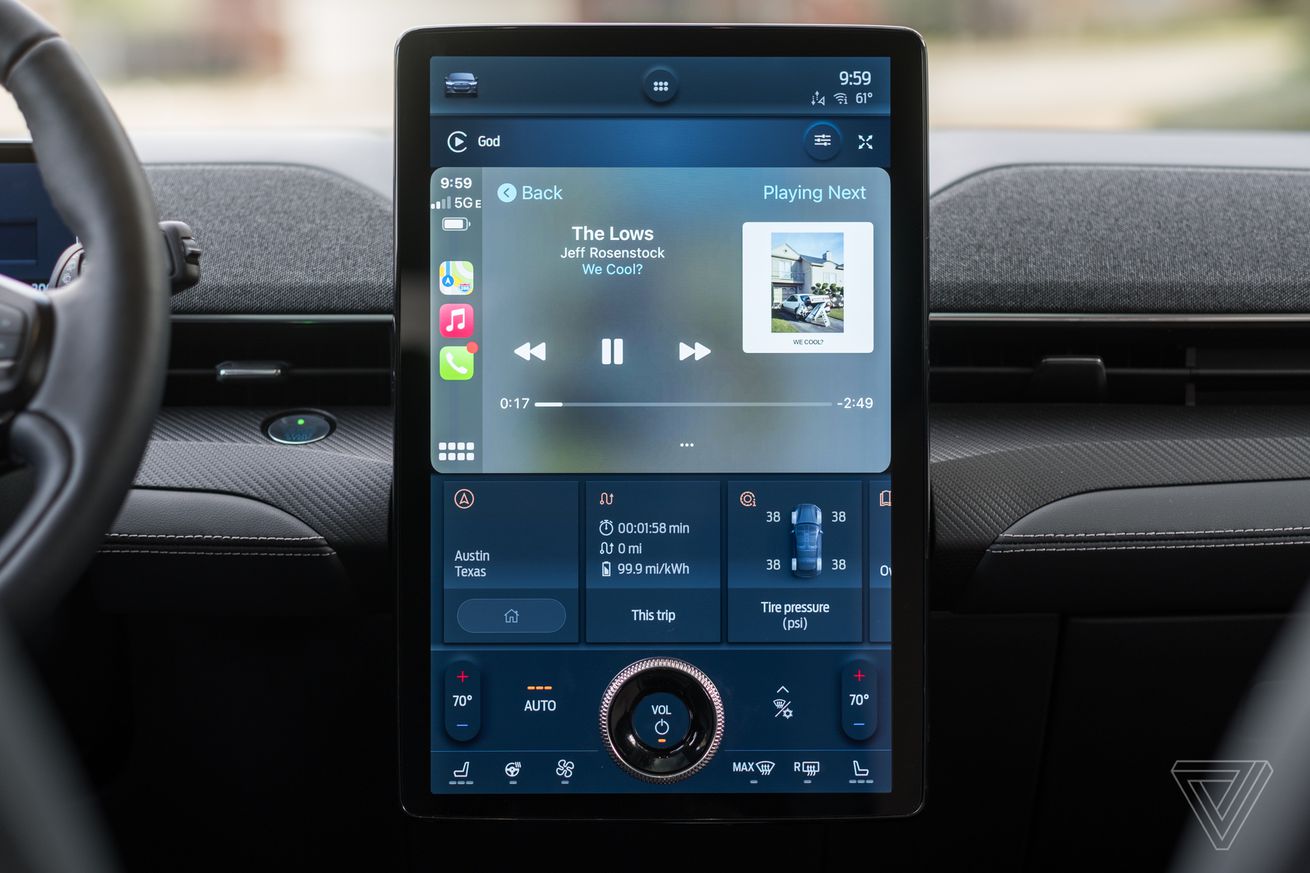
The shift to EVs is slowly killing off AM radio — and that’s bad for emergency broadcasts
AM radio is under the gun, with more and more automakers discontinuing its use, especially as the industry undergoes a rapid shift to electrification. Lawmakers and regulators are worried that the slow demise of AM radio could make it more difficult to broadcast emergency information during a natural disaster or other related events. But automakers are undeterred and seem determined to sweep AM radio into the dustbin of history.
The latest model to hit dealerships without the first-generation radio broadcast technology is the 2024 Ford Mustang, according to Ars Technica, citing Ford Authority. Indeed, Ford was one of eight companies to essentially declare AM radio to be an obsolete technology in their response to Senator Ed Markey’s (D-MA) request for information.
The latest model to hit dealerships without the first-generation radio broadcast technology is the 2024 Ford Mustang
Ford was joined by BMW, Mazda, Polestar, Rivian, Tesla, Volkswagen, and Volvo in staking out the position that AM radio is incompatible with EVs, citing electromagnetic interference from the powertrain. Indeed, Tesla made this same argument when it removed AM radio from its vehicles back in 2018.
According to a Vice article from 2016, the problem is when the interference gets picked up by the radio:
EVs are powered by a rechargeable battery, electric motor, and a frequency converter that controls how much power the car’s electrical motors put out by turning voltage on and off thousands of times a second, basically chopping up energy. This process causes electromagnetic interference that gets picked up by the radio.
Ford said [PDF] there were other technologies available, such as internet streaming, HD radio delivered on FM bands, or some apps that provide AM content, that will make up for the absence of AM radio in its vehicles.
Markey said that 10 automakers — Honda, Hyundai, Jaguar / Land Rover, Kia, Lucid, Mitsubishi, Nissan, Stellantis, Subaru, and Toyota — have said they have no plans to discontinue their use of AM radio. General Motors and Mercedes-Benz have not responded, relying instead on statements from the industry group Alliance for Automotive Innovation.
To be sure, none of these automakers went so far as to declare their long-term commitment to AM radio’s survival. Indeed, all signs point to AM’s waning relevance in the auto industry, which Markey argues would make it more difficult to convey important information to people during an emergency.
To be sure, none of these automakers went so far as to declare their long-term commitment to AM radio’s survival
“[T]oo many automakers are ignoring the critical safety benefits of AM radio,” Markey said in a statement this week. “Although many automakers suggested that other communication tools — such as internet radio — could replace broadcast AM radio, in an emergency, drivers might not have access to the internet and could miss critical safety information.”
According to Markey, AM radio operates at lower frequencies and longer wavelengths, enabling it to pass through solid objects and travel further than other radio waves — a feature not shared by FM broadcasts. As a result, FEMA’s National Public Warning System — through which FEMA delivers critical safety alerts to the public — operates through broadcast AM radio stations.
“AM radio is irreplaceable,” Markey added.
The senator isn’t alone in his concerns about the future of AM radio. FCC Commissioner Nathan Simington recently spoke out on its continued importance to public safety and argued in favor of continuing to include AM radios in EVs, despite claims of electromagnetic interference.
“As electric vehicle adoption increases, we must not leave behind those in rural areas who depend on radio for their news and alerts,” Simington said, according to DRG News.
And last month, a group of former FEMA managers urged Transportation Secretary Pete Buttigieg to seek assurances from the auto industry that AM radio will remain a vital part of their technology offerings in the future.
But as AM radio continues to disappear from vehicles, one after the other, it’s not clear the industry is receiving the message.

